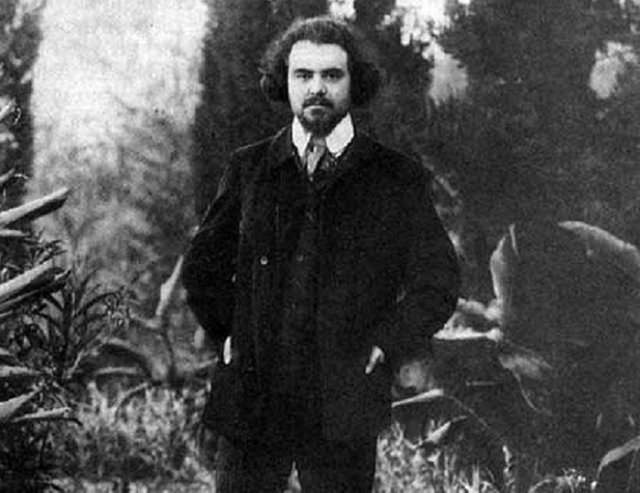Nikolai Berdyaev - Democracy or theocracy and the individual and public aspects of power by Bertrand Russell
Nikolay Berdayev - Democracy or theocracy
To deny the revolution as a real fact is a sign of complete blindness. Another question about her assessment. In this connection, Nikolai Berdyaev develops the idea that state and statehood can not be other than those defined by traditions, folk instincts and habits or historical memory. Applied to the criticism of the Russian Bolsheviks, it is based on several basic postulates. First, every state authority is hierarchical and therefore non-democratic in its nature. Secondly, democracy is incompatible with hierarchical freedom. Declared as spiritual creation, freedom is not democratic, but - soon aristocratic. The state power, Nikolai Berdyaev stresses, has never belonged and can not in principle belong to the people, because its nature is hierarchical.
Nikolai Berdyaev analyzes the two elements in the philosophy of socialism in his book "Philosophy of inequality", published in 1923 and says that in the philosophy of socialism there are two elements: in one of them the class moment defeats the objective moment and the continuation of the whole story equally sees the righteousness in the revolts of the nobles and the evil in the very existence of the wealthy; in the other objective moment is stronger than the class and in different historical epochs are recognized as progressive different classes and different tasks are placed before them. Actually, revolutionary socialism always moves and inspires the first element, he sympathizes with all the uprisings of the masses, all the riots of the crowds in history and in all times equally condemns and curses all the higher classes, all wealthy and cultural strata. Throughout history, he conducts the line that divides the human race into two races of two kingdoms - "bourgeoisie" and "proletariat." In Marxism, the two elements of socialism are mixed. Inequality is a condition for the development of culture. This is an axiom. And it remains unproven because equality is morally higher than inequality. Maybe inequality is in itself righteousness and good, and we should strive for it? And in the Kingdom God will have inequality. With inequality is connected every being. There must be no poor and hungry in the world, everyone must be provided with human dignified existence. But this does not require equality. According to Nikolai Berdyaev, socialism is a denial not only of democracy but also of freedom. The state of socialism is neither a democratic nor a liberal, but rather a new form of theocracy.
Bertrand Russell - Individual and Public Aspects of Power
According to Russell, a fundamental concept in social sciences is power in this sense in which energy is a fundamental notion of physics. It begins with the description of the phenomenological level of the simplest, most comprehensible and mass manifestation of power: when every individual having an individual will deliberately strive to achieve certain goals to obtain supposed results of his activity. power than C, if A reaches much more predetermined results, and B is significantly smaller.
Individual aspects of power:
- If the character of one potentially contains the features of the political leader, in others the love of power is insufficiently pronounced These people can hardly influence the course of events.
- The power of glory, self-belief, and other traits may exist in a hidden form, which in turn expands the field of impulse action to power, self-confidence.
- One always seek to command others to obey. Between these two extremes are huge masses of obedient choirs, who like to command in some situations and in others - to obey the leaders.
- There is, finally, the fourth type of people who have the tendency to give up submission and have little desire to command anybody. They reluctantly rejoin the existing social structure, almost never meet its requirements, and are therefore seeking This is a delusion: loneliness does not exist.
B. Russell deeply examines the social, collective aspects of power. Not only does the organization "make" the person but also the personality - the organization. B. Russell is a great critic of corruption amongst the rulers. He even comes to an extreme over-qualification, according to which modern statesmen are corrupt by Hitler.

You have recieved a free upvote from minnowpond, Send 0.1 -> 2 SBD with your post url as the memo to recieve an upvote from up to 100 accounts!
To listen to the audio version of this article click on the play image.

Brought to you by @tts. If you find it useful please consider upvoting this reply.
It's brave of you to approach this topic the way you did. It's right on the mark for a few Discord groups I'm a part of, let me know if your interested in any of them bud.